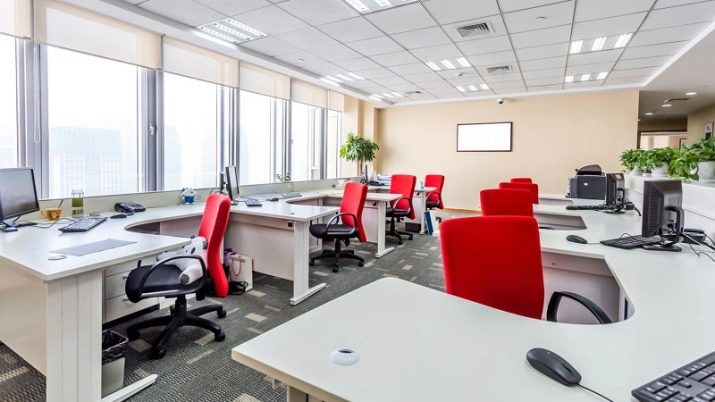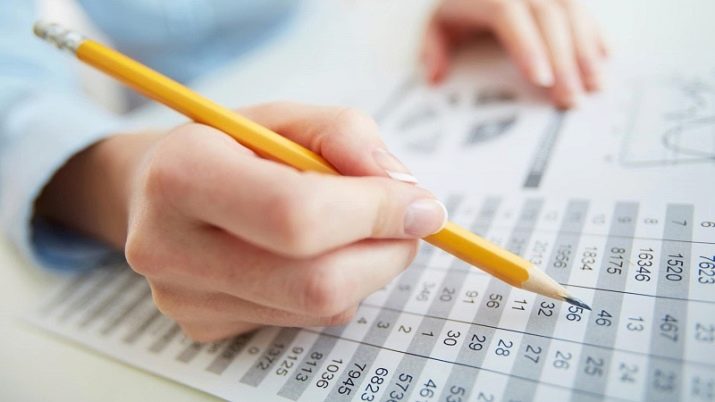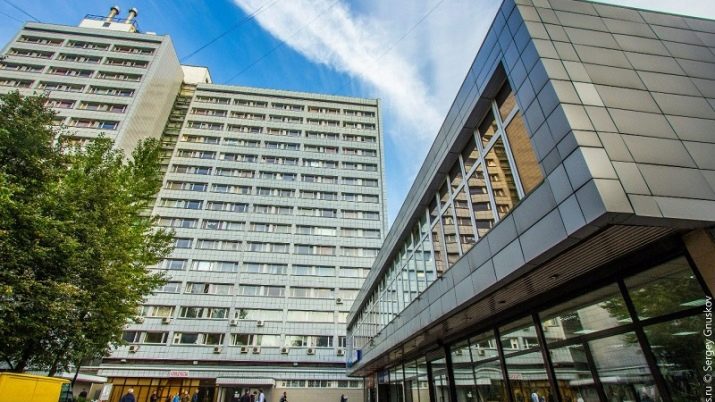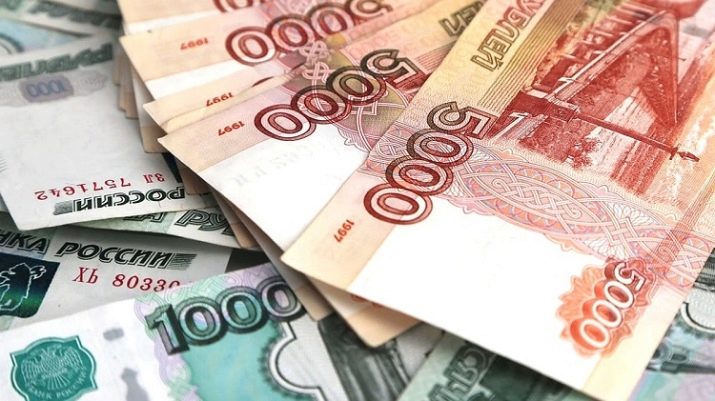Profession of economist: description and job description

The description of the profession of an economist and its job description will certainly interest many people. Very important information - how much such a specialist earns and what other related positions he can get. To master the profession, you need to find out in advance what subjects you need to take upon admission; another important point is career prospects.
Description
The history of the profession of an economist began relatively long ago. In fact, it appeared at the same moment, as soon as money circulation was organized and it became necessary to analyze the movement of finance. The very term "economy" appeared in ancient Greece and referred primarily to the household. However, for many centuries economists have been engaged in very abstract research, and until the twentieth century, in fact, this term was more often meant theorists and experts in the field of macroeconomics.
The condition for the emergence of specialization of economists in the modern everyday sense of the word was the increase in the number of organizations and the complication of their activities.

Already in the period between the world wars, it became clear that a special type of specialists was needed, which would not belong to the category of managers and accountants more familiar then. Gradually, the subject of such an employee's activity took shape - tracking economic results at enterprises and organizations, planning practical work. The definition of this specialization indicates that it is related to all economic issues in any structure. Allocate economists:
- the banking sector;
- industry;
- tourism;
- cultural institutions;
- transport;
- energy;
- international affairs (in the field of cross-border trade and exchange);
- government agencies;
- the insurance sector;
- the advertising industry and other areas, each of which imposes its own specifics.
This specialty, which is in demand, of course, belongs to the type “person - sign system”. Familiarity with the documents and the ability to quickly analyze the information presented are of great importance. Naturally, a large number of documents will have to be drawn up independently. A very important component of the work is the preparation of forecasts for the further development of the organization and the formation of proposals for such development.
Given the current instability of the market situation, the responsibility of specialists with such skills is growing.


Advantages and disadvantages
Economists work strictly indoors. On the one hand, this guarantees protection from bad weather, on the other, constant inactivity is harmful to health. Other highlights include:
- versatility;
- high demand;
- consistently high wages for experienced professionals;
- starting work with not the highest salary;
- significant competition for jobs.
Job description
Responsibilities
A specialist in the position of an economist is engaged in increasing the economic efficiency of the enterprise. He is also responsible for:
- increasing the profitability of the production of certain types of products (provision of certain services);
- improving product quality without significant financial losses;
- rational use of labor, financial and resource potential.

Also, the work of an economist is to prepare a package of initial data, which will then form the basis of a long-term development plan. If a company is preparing to master a new type of production or to modernize its main capacities, then it will have to form a justification or, with figures in hand, prove the incorrectness of such a step. The professional also makes an analysis of business practices, discovers which resources are not fully utilized and which are lacking. Its functions also include:
- development of saving measures;
- concern for the competitiveness of the company as a whole;
- assessment of the performance of work at the enterprise and in its individual divisions;
- registration of materials required for the conclusion of contracts.
The professional standard of the chief economist of the personnel service establishes the following functional responsibilities:
- control over the work of the department;
- maintaining the discipline of subordinate economists;
- records management;
- preservation of commercial and other official secrets;
- observance of normal working conditions and safety standards in the entrusted unit.

Rights
The powers include making proposals for improving the work of the enterprise as a whole, its individual divisions. Also, an economist has the right to raise the issue of improving the conditions for their own activities and providing additional information. He sends such requirements to the manager to whom he reports directly, or directly to the head of the organization.
The legal right of this specialist is also the filing of documents on official sanctions for violators of discipline. Be sure to have to get acquainted with the criteria for the quality of the enterprise. Other requirements are spelled out in the general labor law.
A responsibility
It comes:
- in case of non-fulfillment or incomplete fulfillment of the prescribed duties;
- in case of violation of the law committed during work or using powers;
- in case of damage to the employer (regardless of intentions and from the receipt or absence of material benefits).

Who can work?
There are a lot of specializations of economists in Russia - at least not less than in foreign countries.Despite the known universality, usually there is still a clear orientation towards one or another type of activity. So, a planning economist:
- develops a policy in the field of quality and standardization;
- makes calculations of economic and economic effects (together with employees of engineering, design and maintenance services);
- prepares certificates on energy resources;
- prepares methodologies for enterprise planning and cost accounting;
- calculates rationalization proposals, determines their validity.
To qualify for the position of procurement economist, you need to be an expert in specific types of resources and in their use. Additionally, you will have to learn how to form current and long-term plans for dealing with various resources, to analyze their implementation.
As necessary, either the plans are adjusted, or, if certain types of raw materials, semi-finished products, fuel and energy are really needed, applications are drawn up for them. Justifications are attached to the applications.

If these applications are satisfied (coordinated) by the chief, then the procurement economist comes into play. A specialist in this category must have the competencies provided for by the professional standard, including:
- for examination of the results of purchases;
- to determine the compliance of their procedure with the established norms;
- to analyze the level of prices in various markets and determine the equilibrium reasonable price for the purchase;
- for processing documentary materials and preparing new documents.
Of course it is difficult to find a full-fledged place in any economic sphere without experience. But it is even more difficult for applicants for senior economics positions. They develop methods by which their subordinate specialists work. To fulfill such a duty, a large amount of scientific and technical information has to be processed. Some specialists of this profile may be employed in the research of economic processes.
The main responsibilities of sales economists relate, predictably, to ensuring the sale of goods and services. We have to prepare certificates and justifications for prices. An important role in the activity is played by the accounting of the fulfilled share of supplies (services rendered), cost control.
Basic knowledge of marketing will be required. Such employees are expected not only in the production of industrial goods, but also in construction and agriculture.

Economists-marketers are reasonably distinguished into a separate group. They:
- monitor the company's market share and its dynamics;
- collect and organize all the information necessary to work with the market;
- if necessary, give recommendations for leaving the market with minimal losses;
- prepare reporting.
The labor and wages economist - as the title of the position implies - calculates the wage funds, distributes them by category. Coming to a new place, he will have to analyze the forms of remuneration and propose optimization. If savings are achieved, measures can be proposed to rationalize the use of the saved funds. A budgeting economist works not only in budgetary institutions, of course. Its main task is to form the budgets of the organization, prepare measures that will save money and increase cost efficiency.
You will also have to:
- engage in margin analysis;
- analyze statistical information;
- prepare explanatory notes for budgets;
- work out budget models and optimize them.
The cybernetic economist applies modern mathematical models. He deals with systems analysis and aligns goals in a hierarchical system. We have to form cybernetic models of economic and economic processes. This approach is believed to guarantee disruptive business success.
The planning department economist works with business plans. He also:
- organizes and improves planning itself;
- deals with pricing;
- conducts economic analysis;
- analyzes the composition of costs;
- draws up business trips;
- prepares estimate documentation.
Economist estimator works in construction. Its purpose is to determine how much costs will be needed to complete certain works. Costs and profits are maximized largely because of him. In addition, economists can work:
- in housing and communal services;
- in banks;
- in healthcare.

Knowledge and skills
A specialist in the field of economics should know and be able to quite a lot:
- speak a foreign language (at least English);
- master mathematics;
- understand the methods of economic analysis and statistics;
- study the norms of labor legislation;
- master the experience of domestic and foreign economists in their field;
- master the rules for concluding contracts and other documents;
- know the ways and methods of performing calculations;
- study legal acts, orders and orders.
Personal qualities
The main properties of economists are as follows:
- a responsibility;
- self confidence;
- display of initiative;
- analytical mindset;
- high communication skills;
- purposefulness;
- diligence;
- careful attention;
- willingness to constantly evolve.

Education
A variety of universities and specialized secondary educational institutions provide training in the specialty "economist". But it is better to give preference only to the most advanced institutions, where a very decent education is organized. First of all, we are talking about:
- Moscow State University;
- RANEPA and its branches;
- MIREA;
- MEI;
- HSE;
- Voenmekh;
- Russian State University for the Humanities;
- PRUE;
- Far Eastern Federal University.
You can also go to study after grade 11:
- Kazan Federal University;
- UrFU;
- MISIS;
- Mining University of St. Petersburg;
- SUSU;
- Russian State Pedagogical University named after Herzen.

Finally, to become an economist, you can take exams in:
- Novosibirsk Research University;
- OmSU;
- NCFU;
- University of the Pacific;
- Yaroslavl State University;
- Minin State University of Nizhny Novgorod.
The very specifics of economists' activities implies that they must possess key information in higher mathematics and applied computer science. There are even special textbooks on higher mathematics for specialists in this field. It is important to know what subjects you need to take for the exam. Most often, in addition to mathematics, they will need to master the Russian language and social studies. But still, first of all, they look at the possession of computational skills.
Of course, the higher the score, the more chances you have for admission to faculties with economic departments. This is especially important in universities with a high level of training, training in which increases the prospects for employment.
It is worth considering that specific requirements may differ in different cases. With an increase in the level of knowledge and with retraining, the same disciplines are studied as in the initial training. However, great attention is also paid to direct experience and fresh skills.

Career
Economists are in demand in traditional industries and in newly emerging industries. However, starting a career is not easy. It is not enough to acquire a lot of theoretical and practical knowledge. Having received secondary vocational education, you can count on the positions of auditors or accountants. After graduating from university, sometimes it is possible to get posts:
- chief accountants;
- financial directors;
- chief economists of divisions;
- financial managers.
Still, they usually start from the position of an assistant accountant or office manager. It is useful to look for a job already in the last 2 years of study. Then you can become:
- senior accountant;
- Deputy Chief Accountant;
- chief accountant;
- financial director;
- direction manager;
- CEO.
What salary?
The average salary of economists strongly depends on the size of the company, on the region where it is located.Income is also influenced by foreign language proficiency, additional specialization, work experience and range of responsibilities. But getting a solid position in an international firm or in an organization engaged in export-import operations is not very easy. An economist earns on average:
- 55,000-60000 rubles in Moscow;
- 50,000-60000 in regions with a northern coefficient;
- 25,000-30,000 for the position of labor economist;
- 30,000-40,000 as an engineer-economist;
- 45 thousand in Kemerovo;
- 32.5 thousand in the Altai Territory;
- 31 thousand in the Arkhangelsk region;
- 22,000 in Karelia;
- 27500 in the Vologda region.




